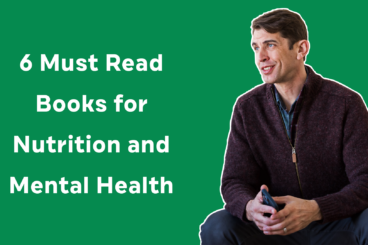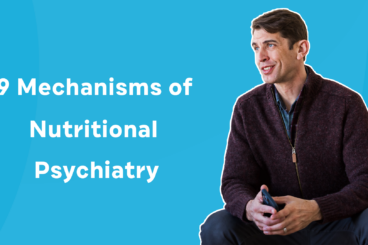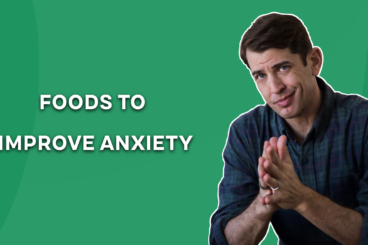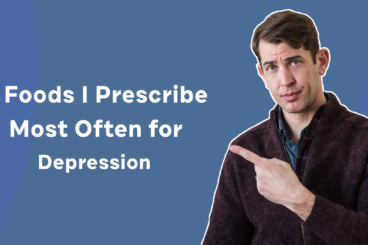 The Happiness Diet
The Happiness Diet hits stores today. Before (or hey, even after) you run out to get your copy, this helpful Q&A lays out some of the
basics of the
Happiness Diet.Can you really improve mental and emotional well-being through diet?
The Happiness Diet is the first book to connect your fork to your feelings. Before you even start changing your outlook on life to improve your emotional well-being, you should make sure your eating behavior is the best in can be so that the master mood regulator—the brain—is provided with what it needs to be strong, healthy, and happy. Emerging research in the fields of neuroscience and nutrition shows that by changing what you eat, you can improve your mental and emotional well-being, stabilize your moods, improve your focus, and even make your brain grow.
What is MAD: The Modern American Diet?
This way of eating — comprised largely of sugar, refined carbs, and industrial vegetable fats — is making us fat and depressed. You’re probably aware that our food is responsible for our epidemic levels of obesity and diabetes but you might be surprised that it’s also contributing to the skyrocketing levels of brain disorders like depression and dementia. The Happiness Diet is the solution to the MAD way of life.
How has the Modern American Diet made us sadder?
Many of the nutrients that human brains depend on for healthy functioning have been stripped from our food supply by factory farming and by modern methods of food processing. In addition, new chemicals have been added that are impairing brain function. Study after study in the medical research journals confirm that people who are most dependent on MAD-style eating habits have increased levels of depression, anxiety, mood swings, hyperactivity, and a wide variety of other mental and emotional problems.
You tell readers to stop worrying about fat, cholesterol, and even calories. This seems to go against everything we’ve heard (and even what our government tells us in their dietary guidelines). Can you explain?
Fat is your friend — the right fat, that is. You should be eating fish, grass fed beef, butter, yogurt and full fat milk. It carries many nutrients that can only dissolve in fat, such as vitamin D and E. Omega-3s are fats and they are some of the most crucial fats for protecting you against mood disorders.
The old idea about calories-in/calories-out is being thrown on its head. It turns out the kind of food you’re eating is much more important to whether or not you gain weight than the amount. That’s because food affects our hormones and the same foods that trigger our hormones to make us gain weight also leads to unhappiness. These foods are — you guessed it — most notably sugar and refined carbs.
Dietary cholesterol is not the bad guy—we now know that eating cholesterol in your diet actually has a fairly small impact on your blood cholesterol levels for most people. Instead a diet high in sugar, refined crabs, and industrial vegetable fats is increasingly known as a risk for both brain and heart diseases. In fact, your brain needs cholesterol—the science is still emerging but we know that chronic cholesterol depletion disrupts neurotransmitters that regulate mood. Low cholesterol levels have been linked to an increased risk of suicide and are also associated with an increased risk of cancer.
You say that Americans today are “overfed and undernourished”—what do you mean by that? How is the MAD way of life causing us to be deficient in essential brain nutrients?
With MAD we are expanding our waistlines and starving our brains at the same time. We’re eating more sugar and refined carbohydrates (which play tricks on your brain so you keep craving more and more of them, all the while shrinking your brain); more refined vegetable oils, which have been linked to an increased risk of depression; and more factory farmed meat and fish which leaves their flesh deficient of the very fats and nutrients our brains have required from animals since the dawn of human kind. Going back to eating wholesome foods that nurtured the development of our brains tens of thousands of years ago is the key to turning things around.
Is it true that bacon and eggs can be mood-boosting foods? What are some other surprising recommendations you talk about in the book?
There’s no reason to fear America’s favorite breakfast, if done right. Free-range eggs are a nutritional powerhouse—the perfect brain food, loaded with B6 (crucial for cognitive function) and B12 (crucial for avoiding agitation and loss of focus); and selenium (crucial for cooling brain inflammation); plus iodine (regulates thyroid), zinc (the “intelligence mineral”), omega 3-s (make us smarter and protect us from heart disease) and much more. Pasture raised pigs contain oleic acid which is linked to a decreased risk of depression in women; and both eggs and bacon contain choline, which is linked to lower anxiety and CLA, which reduces belly far and fights cancer. And while you’re at it, enjoy burgers, ice cream, and cheese–sustainably and naturally raised meat and dairy fights depression, builds brain cells and trims your waistline.
How does pairing certain foods actually boost their “happiness quotient?”
Many of the dishes humans have eaten for generations—like rice and beans, or tomatoes drizzled with olive oil—have withstood the test of time not simply because the ingredients are delicious together, but health experts believe we enjoy these combos because they’re more nutritious together than on their own. This concept is called “food synergy.” Some of the most powerful food synergies include: salmon and red wine (the polyphenols in grapes help absorb more of the brain-healthy omega-3s in fish); lemon and spinach (vitamin c in lemons help your body absorb more of the iron found in spinach—a mineral the prevents mood swings and promotes happiness); vinegar and sushi rice (vinegar decreases rice’s ability to raise blood sugar levels by 20-40%); beet greens & chickpeas (the vitamin B6 in chickpeas help your body absorb the magnesium in beet greens which work together to ease symptoms of PMS and ADHD).
What are your thoughts on Vegetarianism & Veganism? Can we achieve optimal brain health without meat in our diet?
The Happiness Diet is primarily a plant-based diet, as we know vegetables to be full of important molecules necessary for brain (and overall) health. However, we also know that without meat and animal products, the brain rots from B12 deficiency—a nutrient found only in meat and dairy. That’s not our opinion, it’s basic neurology. Vegans who eat no animal products become B12 deficient (if they don’t take supplements) and their diet also lacks sufficient long-chained omega-3 fats like DHA and EPA, the most important fats in the brain. Vegans are also missing out on other important fats like CLA, found in meat and dairy. Many vegetarians and vegans also struggle with low moods and a lack of ability to focus. However, once they start eating meat, they feel much better—just ask Dr. Drew Ramsey who was a vegetarian for over a decade! Simply put, when you look at the human brain through the lens of evolution and recent science, the kinds of meat recommended in
The Happiness Diet are much-needed brain food.




